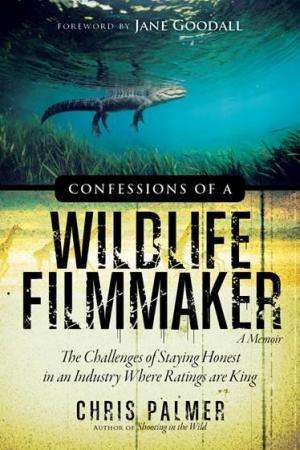New book reveals deception in wildlife filmmaking

American University's School of Communication professor Chris Palmer's new book, Confessions of a Wildlife Filmmaker: The Challenges of Staying Honest in an Industry Where Ratings Are King, is part memoir, part confession, and part indictment of the cable and television networks for unethical practices. The book calls for broadcasters like Discovery and Animal Planet to value conservation, education, and animal welfare above their pursuit of top ratings and profits.
Wildlife films play a major role in raising awareness about the natural world. But, according to Palmer's new book, often times the footage has been obtained at the expense of significantly disturbing and even harming the animals being filmed. Confessions provides a behind-the- scenes look at the making of nature shows and reveals how animals are put in harm's way simply to get the shot. As an industry insider, Palmer wrote his book as a call to viewers and filmmakers to demand change.
Palmer shares the mistakes he has made while struggling to advance in the wildlife filmmaking industry. "I am writing this book to try to change the industry by being open about my own challenges and failings as a human being and as a filmmaker," said Palmer. "I want to show the complexities of making wildlife films in an ethical manner. It is not easy to pull back the curtain on the industry's failures—and even harder to reveal my own—but I believe the time has come for wildlife filmmaking to move in a healthier direction."
According to the book, wildlife filmmaking has become corrupted as broadcasters compete for ratings in a time of decreased budgets. Palmer explains that the state of the wildlife filmmaking industry deteriorates every year and says that much worse things are being done in this highly competitive field since his first book in this topic Shooting in the Wild (2010). Broadcasters such as Animal Planet, Discovery, National Geographic, and the History Channel are guilty of using staged scenes, camera tricks and animal harassment.
The book holds television network broadcasters responsible claiming that it is their obsession with earnings and ratings that encourages unethical wildlife filmmaking practices. Palmer criticizes the race for continual higher ratings because it results in further corruption of the quality of these programs. "It's a fiercely competitive industry. National Geographic, Discovery, Animal Planet, the History Channel and other networks all vie for viewers," said Palmer. "Therefore, the broadcasters fear losing their jobs if they if they do not achieve high ratings."
Understanding the need for change from the top-down in the profession, Palmer calls for stringent ethical standards that will move the wildlife filmmaking profession into a new era. Additionally, with an aware public demanding higher standards of ethical behavior and condemning films that were made possible by harassing animals and by deception, the public can help move the industry in the right direction.
Provided by American University